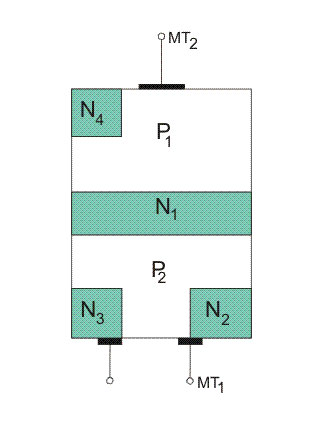The TRIAC stands for triode for alternating current (AC). The TRIAC is another thyristor family device which is used extensively for the control of power in A.C. circuits.
Where the thyristor can only control current over one half of the cycle, the TRIAC controls it over two half of an AC waveform.
Construction:
The TRIAC is bidirectional device and when in operation, it is equivalent to two silicon controlled rectifiers (SCRs) connected in anti parallel.
It has a four layer (PNPN) and three junction devices. It has three terminals designated as a main terminal 1 (MT1), main terminal 2 (MT2) and gate G.
We can see that the terminal MT2 is common to N4 as well as P1, the terminal MT1 is common to N2 as well as P2 and G is common to N3 as well as P2.
This different type of construction of TRIAC makes it suitable to be operated in four modes. The TRIAC is turned ON by applying a positive or negative voltage to the gate with respect to MT1.

